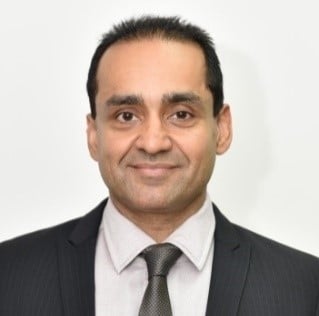Publisher: Maaal International Media Company
License: 465734
Saudi Arabia is all set to amaze the world again
“Our people will amaze the world again. We are confident about the Kingdom’s future”. This statement by His Royal Highness Crown Prince Muhammad Bin Salman in the Kingdom’s Vision 2030 document stuck in my mind when it read it a couple of years ago. As someone who likes to ponder over powerful statements by leaders, I was left ruminating about what the Crown Prince had meant by this statement.
Earlier, some 1440 years ago, the world had been left “amazed” by developments in the Arabian Peninsula during the era of the Holy Prophet (PBUH). It was like the proverbial rain in the desert. From the heartland of Arabia rose a people inspired by faith and equipped with knowledge who spread Islam’s message of peace to the four corners of the world. In the process, an enviable institutional framework of statecraft, commerce and intellectual pursuits was set in motion.
As luck would have it, I recently found out how Saudi Arabia can actually amaze the world – again.
اقرأ المزيد
I have spent the better part of this year in the Kingdom. I have met tens of Saudis ranging from businessmen of all stripes to public sector officials, as well as academics and students in various cities. Admittedly, I was left amazed. Let me explain.
There is a palpable energy in the air everywhere you go. It isn’t some fleeting pleasure or a momentary bout of rejoicing at some newfound freedoms (women being allowed to drive) or the opening up of new forms of entertainment (theatres and concerts). All these things do matter, but there is much more to this new “National Enthusiasm Index”.
The Saudis I met share a common zeal for playing their part in the Kingdom’s economic growth and in securing a better future for themselves and their generations. This faith – or belief system – seems to have permeated the country’s entire social fabric. It’s everywhere. And it’s here to stay.
Take for example, students. College going students that I met were mindful that for them to have a meaningful role in the country’s upward economic trajectory, they would have to excel in their fields and continue to upgrade their skills. The young lawyers I met were not shy to ask me about the skillset they needed to broaden their intellectual horizon and make themselves globally marketable.
I found the businessmen (mostly second and third generations) buoyed and enthusiastic by opportunities on offer for growth. What struck me most were the young entrepreneurs. Some of them demonstrated an “out-of-the-box” thinking in terms of ideas and an impressive familiarity with global economic trends.
The public sector officials that I met exuded a sense of responsibility towards the country and its people. A ministry official told me that in the pursuit of completing tasks assigned to him, he had to regularly work late after office hours. Undaunted by the new challenges, most public officials came across as energetic, warm and welcoming to new ideas.
As a keen student of history, I believe that nations whose leadership and people develop a common vision become primed for excellence. In other words, an essential ingredient for a nation’s prosperity is when a leader’s vision has acceptance at the grassroots. There is clearly a “meeting of minds” between the Crown Prince and the Saudis in terms of his vision for the country.
Admitted that the Kingdom has had a head-start due to its baseline stature: it is the nucleus of the Muslim World due to Makkah Al Mukarrama and Medina al Munawwara; its energy reserves have ensured global dependence on the country; and its geo-strategic location places it is at the heart of the world. But with an energetic and forward-thinking youth, a responsive public sector, and a state investing heavily in securing the country’s future, a “Whole of State” architecture has come into play, similar to a well-lubricated machine that functions smoothly when all its moving parts work in tandem.
The initial results have been encouraging. The world is increasingly gravitating towards the Kingdom and international investors are eying it as a destination for FDI. This is due to the wide-ranging economic reforms, privatization initiatives, digitization and the state’s promise to international investors of “equal treatment” at par with Saudis.
To the world, the Kingdom now appear as a country that combines tradition and modernity, energy and purpose, and prosperity and equality.
Going hand-in-hand with the above are legal developments. Increasingly, the Kingdom’s laws are being derived from international best practices. An example is privatisation laws and the companies law. Both laws draw from international best practices and provide a fertile ground for sowing seems of long-term public and private sector partnerships.
It would not be an exaggeration to say that the Kingdom is now primed to attain an even higher global stature. And the majority population, which comprises of youth, could very well see this happen in their lifetime. By all means, the Kingdom is set to amaze the world again. It’s happening right before our eyes.
Hassan Aslam Shad is an international lawyer and a graduate of Harvard Law School, U.S.A. He is the first person from the OIC Countries to intern for six months at the Presidency of the International Criminal Court, The Hague. He is presently a Legal Director at CMS Cameron McKenna, a Global Top Ten International Law Firm. Twitter: @HassShad






